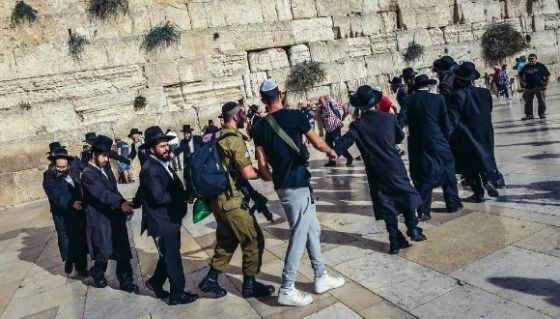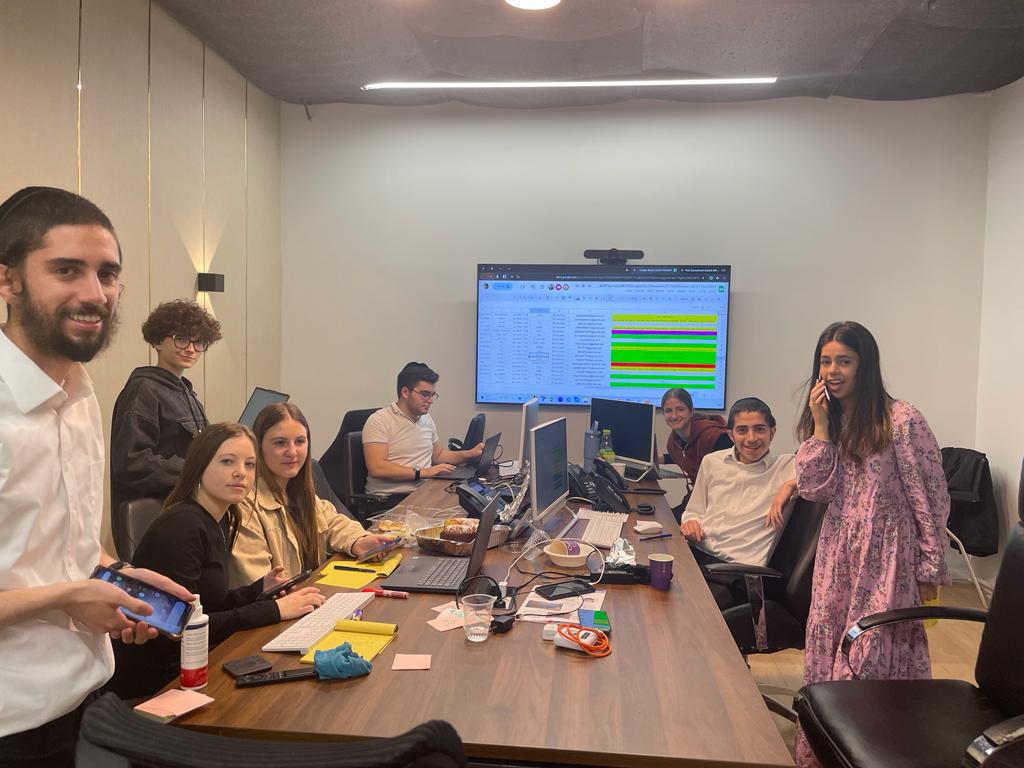
Promoting Volunteering among the Ultra-Orthodox during Wartime
Written on | Israel at War, Tel Aviv University
Tel Aviv University Haredi researcher sees “a real change”.
Minutes after Shabbat ended on what Israelis now call “Black Saturday”—the 7th of October, 2023—Dr. Nechumi Yaffe, researcher and senior lecturer at Tel Aviv University’s Department of Public Policy, began organizing what became the “Unity War Room”—one of the largest efforts of Israel’s ultra-Orthodox population for volunteering in the country’s toughest times. Yaffe was the right woman for the job. Coming from a Hasidic family and being a trailblazing ultra-Orthodox researcher in Israeli academia, she has an established network of connections within Haredi communities throughout the country. She was able to mobilize these contacts to quickly establish a massive organized group of volunteers. About 14,000 volunteers joined the initiative within the first few days of the war. This kind of engagement was remarkable given the attitude of isolation and non-involvement the ultra-Orthodox population usually adopts toward any State-affiliated outreach.“I believe what moved them was a feeling of responsibility of being part of the Jewish people—we’re at war, we’re in crisis, we need to help,” Yaffe explains.It was an opportunity to engage hearts and change minds among Haredim about being an integral part of Israeli society, she says. “It is as though the ultra-Orthodox suddenly woke up to the notion of citizenship and solidarity,” Yaffe recently commented to the Yediot Ahronot newspaper.

Haredi youth running the Unity War Room command center (photo: Nechumi Yaffe)
Essential Help
Unity War Room’s goals center on three projects. The first is finding people to cook meals and procure whatever is needed by the thousands of evacuees and soldiers called up to serve on the front lines. In the first weeks of the war, the initiative’s volunteers cooked over 100,000 meals and raised close to 9 million shekels to purchase and deliver the necessary supplies. The second arm of the effort is providing support to families during funerals and mourning periods (shivas) and also on happy occasions when a family may have no resources to organize a celebration. The volunteers make sure families have everything they need. So far, over 4,000 volunteers attended funerals and accompanied mourners. The third part of the initiative is finding people to help on farms and other workplaces that have been left short-staffed. Unity War Room enlisted the help of various seminaries and yeshivas to participate, and they joined in with over 6540 people who have volunteered thus far.Historic Change
To put the network on track toward operating efficiently, Yaffe and her team (which included her daughters and friends), organized improvised trainings for some of the ultra-Orthodox youth to learn how to manage basic Excel sheets and computer work. “Now we have people in charge for every region of the country, and I don’t need to be personally involved anymore,” Yaffe proudly notes. Throughout the process, Yaffe, who researches the Ultra-Orthodox population, is observing, measuring, and recording.“I can’t stop, I’m addicted to data,” she jokes. Then adds solemnly, “We’re seeing a real change here.”Yaffe has run 11 surveys since the start of the war, and she says the data show a marked shift in attitudes among the Haredi volunteers towards nationalism and solidarity. “The sharp increase may be temporary, but I’m sure that things will not be the same in the ultra-Orthodox segment of the population after the war is over,” she concludes.
